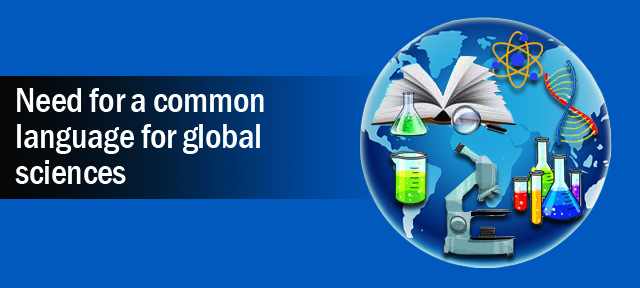Do you think that all research happening across the globe is accessible to the scientists interested in it? However strange it may sound, but the answer is no.

A recently published paper in PLOS Biology journal underscored that due to lack of translation, most of the scientific journal articles are written in a language other than English, are deprived of a large audience. This has resulted in limited access to many new theories.
So, should English become the lingua franca of global science? It would be a great idea to have a dominant language in order to streamline the global research and development process because the absence of it has created barriers for many countries and researchers. It is not that easy though. The study equally highlighted that the universal nature of English has made other studies less popular in the eyes of researchers.
Many people feel that the hegemony of one language might suppress the speakers of other languages resulting in a bias towards popular findings.
Quite a lot of interesting research go unnoticed because of the language barrier. Recent research published in Chinese about the extinction of an exotic bird species population in Japan and the Korean peninsula couldn’t make it to the International Union for the Conservation of Nature. The reason was the language in which the report was published. Chinese has a limited international market.
Researchers at Cambridge University also found out that about 36.6% of the 75000 documents that were ignored on Google scholar were not in English. This is the reason why most of the scientific data available in local languages does not have wide coverage.
Another major complaint of many non-native scholars is that many manuscript reviewers focus on criticizing the correctness of their English rather than concentrating on the findings. This complicates the manuscript reviewing process for many non-English speaking researchers.
So, if making English the language of global science and technology is not the way out, what exactly can be done to valorize local languages in research?
- The ideal would be to encourage translation of studies from one language to the other.
- The findings and key features of the study should be the focus and not the standard English expressions.
- It could be helpful to provide constructive feedback instead of outrightly rejecting the manuscript on the basis of language.
- Non-native English speakers must also understand the complexity of the situation and try to present their ideas in a clear and concise manner.
- Non-native speakers must be open to revision or seek help from an English speaker to make their research comprehensible, logical, and accessible to others.
Conclusion
It is known to all that English is the language that is binding to the international community of scientists and experts. It is also true that non-English speakers form a considerably large part of this global community. It is therefore indispensable for everyone to support each other and work together in order to achieve the ideal situation. Encouraging translations and looking beyond the grammatical errors will help build a stronger scientific community working towards the larger good.

